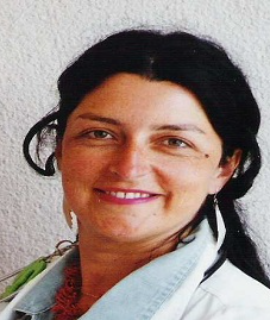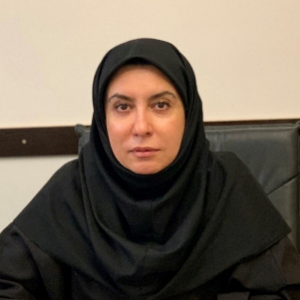Clement Avoka, Allegheny County Health Department, United States
Globally, mental health disorders are among the leading causes of disability in children and adolescents, with depression, anxiety, and behavioral disorders affecting an estimated 1 in 7 young people (1). The rapid rise in environmental, social, and technological stressors, inclu [....] » Read More


























































Title : Nourishing the future: A process improvement project to standardize and enhance feeding strategies for Late Preterm Infants (LPIs)
Ann L Smith, Novant Health Forsyth Medical Center, United States
Context: This project took place in a 25-bed Mother-Baby Unit and a 56-bed Level 3 Neonatal Intensive Care Unit in North Carolina, aimed at addressing the specialized care needs of late preterm infants (LPIs) through a statewide collaboration focused on quality improvement. [....] » Read More
Title : We’re all in this together the benefits of multidisciplinary learning in pediatrics and neonatal medicine
Heather Hanna, Imperial College London, United Kingdom
Multidisciplinary Education is very important in the world of Paediatric and Neonatal Medicine as we endeavour to deliver holistic provision to the children in our care. The underlying pedagogy is designed not only to increase knowledge, but also to equip the Healthcare Professio [....] » Read More
Title : Enhancing comfort and success in pediatric nasogastric tube insertion: Findings from a qualitative study
Jo Vrancken, PXL University College, Belgium
The presentation will begin with an introduction to the topic of nasogastric tube insertion (NTI) in pediatric care, highlighting its significance and the common challenges associated with it, such as pain and distress for children. The background section will provide an overview [....] » Read More
Title : Etiology understanding of the anatomical disruption of the craniofacial bones in children is a corner stone for a proper management
Ali Al Kasissi, Orthopedic Hospital Speising, Austria
Instant clinical recognition of abnormal craniofacial contour can facilitate the diagnostic process and enhance proper management. Overlooking minor or major anatomical disruptions of the craniofacial bones can lead to endless sophisticated unnecessary and time consuming investig [....] » Read More
Title : Brave new world emerging ethical dilemmas in a transforming digital world
Heather Hanna, Imperial College London, United Kingdom
When we consider the future of Pediatrics, we can think of transformations that have already affected our patients and their families in terms of digital advances with corresponding ethical dilemmas. We need to consider the benefits and challenges for ethical debate in a digital [....] » Read More
Title : Brave new world emerging ethical dilemmas in a transforming digital world
Adonna Francis, Imperial College London, United Kingdom
When we consider the future of Pediatrics, we can think of transformations that have already affected our patients and their families in terms of digital advances with corresponding ethical dilemmas. We need to consider the benefits and challenges for ethical debate in a digital [....] » Read More
Title : The effects of belinostat and long-term AsiDNA treatment on gene expression in glioblastoma
Tehreem Fatima, University of Connecticut, United States
Glioblastoma (GBM), the most aggressive primary brain tumor, is marked by high recurrence rates and poor survival outcomes. Current therapies have limited efficacy due to the tumor's ability to evade treatment by leveraging diverse molecular mechanisms. This study explores th [....] » Read More
Title : Caught in the vascular web: Airway obstruction in Infantile haemangioma – A diagnostic puzzle
Dhivya Kamala Raajan, Whittington NHS Trust, United Kingdom
Infantile haemangiomas are the most common vascular tumours in infancy, typically following a proliferative phase followed by gradual involution. Although airway haemangiomas are rare, they present significant diagnostic and therapeutic challenges due to their potential to cause [....] » Read More
Title : Recurrent group B streptococcal meningitis in two neonates following initial therapy - A case series
Bilal Tahir, James Paget University Hospital, United Kingdom
Background: Group B Streptococcus (GBS) is the most common cause of severe infection and meningitis in babies under 3 months of age. Recurrent GBS sepsis is rare but serious. We present two neonates who re-presented with GBS sepsis after initial treatment. [....] » Read More
Title : Small body, big heart
Abeer Elhaj, HaEmek Medical Center, Israel
ALCAPA Syndrome: A Case of Failure to Thrive and Feeding difficulty in a 3-Month-Old Infant. Background: Anomalous Left Coronary Artery from the Pulmonary Artery (ALCAPA) also known as Bland-White-Garland syndrome, is a rare congenital cardiac anomaly occurring in approximately [....] » Read More
Title : Influence of environmental factors on mineralization of dental hard tissues
Nana Suladze, International Dental Centre ISO, Georgia
Introduction: The important task of medical ecology is to examine the accumulation of the air harmful compounds in the human body's tissues and organs. Environmental pollution can be defined by physical and chemical methods and biological indicators: teeth, bones, hair, blood [....] » Read More
Title : Neurodevelopmental outcomes at six months in neonatal sepsis survivors: A cohort study from Nepal
Swechhya Vaidya, Amrita Institue of Medical Sciences and Research Centre, Nepal
Background: Neonatal sepsis is a major health concern in low- and middle-income countries like Nepal, with lasting implications beyond immediate survival. This study investigates the association between neonatal sepsis and neurodevelopmental outcomes cognitive, motor, and behavio [....] » Read More
Title : Evaluation of the factors associated with anemia in neonates admitted to the neonatal unit of Maiwand Teaching Hospital: A cross-sectional study
Mansoor Aslamzai, Kabul University of Medical Sciences, Afghanistan
Background: While anemia has been associated with severe outcomes in neonates, there is a lack of scientific data regarding the associated factors of this problem in newborn babies of Afghanistan; hence, this study was undertaken to fill that gap. The objective of this study was [....] » Read More
Title : Is it safe to limit screening for retinopathy of prematurity after 32 gestational weeks?
Sanja Knezevic, University of Kragujevac Serbija, Serbia
Introduction/Objective: To analyze risk factors in prematurely born children for severe form of retinopathy of prematurity (ROP). Methods: Our prospective cohort study included 769 preterm infants divided according to gestational age, into three groups: group I ( [....] » Read More
Title : Zinc deficiency has an association with early childhood anemia in rural Bangladesh: An observational study
Md Moniruzzaman Mollah, Shaheed Ziaur Rahman Medical College, Bangladesh
Introduction: Anemia is a major public health challenge worldwide that occurs with a higher prevalence in under-five children who live in rural areas. Objectives: This study was designed to find out if there is any association between zinc deficiency and anaemia in pre [....] » Read More
Title : Infections causing neonatal jaundice
Sayan Bhattacharyya, AIIH & PH, India
Background: Neonatal jaundice is a common clinical condition characterized by yellow discoloration of the skin and sclera due to hyperbilirubinemia. While physiological jaundice accounts for the majority of cases, infectious etiologies can lead to pathological jaundice with poten [....] » Read More
Title : From paper to digital growth charts in a tertiary NICU: A quality improvement project
Lauren Ferretti, Cambridge University Hospitals, United Kingdom
Background: The widespread adoption of Electronic Patient Record (EPR) Systems in neonatal units has resulted in improved accuracy of documentation, more efficient storage and retrieval of patient data, and has the environmental benefit of reduced paper use. At a tertiary ne [....] » Read More
Title : Evaluating the use of chest X-Rays in bronchiolitis: A two-cycle audit in a district general hospital
Shmaila Akram, Cwm Taf Health Board, United Kingdom
Background: Bronchiolitis is a common lower respiratory tract infection in infants, typically managed clinically without the need for routine imaging. However, inappropriate use of chest X-rays (CXRs) persists, leading to unnecessary radiation exposure, potential overtreatment wi [....] » Read More
Title : Ventilated newborns with neonatal respiratory distress in a reference neonatal intensive care unit in Algeria
K Boudhar, Mother Child Hospital of Army, Algeria
Background and Aims: We aimed to determine the etiologies and outcome of ventilated newborn with NRD in a tertiary health care center of Algeria. Methods: A retrospective recruiting was conducted over a period of five years (2017-2021), in which were included all newbo [....] » Read More
Title : Pneumothorax in the newborn
K Boudhar, Mother Child Hospital of Army, Algeria
Background and Aims: Pneumothorax occurs more frequently in the newborn period than at any other time of life and it can be a cause or complication of respiratory distress. The aims of this study was : To study the different causes of pneumothorax. Propose ways to redu [....] » Read More
Title : Think of a number – Human vs machine number preferencing in vital observation recording for neonates
Sinoy Joseph, Sheffield Children’s Hospital, United Kingdom
Background: Humans often prefer certain terminal digits (e.g., even numbers, zeros, or fives), while automated systems (machines) theoretically do not. This study compared the terminal-digit distribution of human-recorded versus machine-recorded neonatal heart rate and oxygen sat [....] » Read More